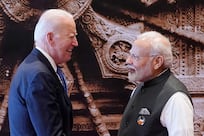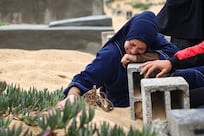With the recent tribulations besetting the Arab region, literature is not only susceptible to change, it engenders our very comprehension of reality and guides us to understanding our position in it.
In all its forms, literature provides the best source of entertainment that distracts people from the agonies of their daily lives by way of aesthetic, cognitive and poetic enjoyment. Perhaps alongside theology and philosophy, literature gives life meaning. It reorders and weaves events into a coherent and creative alternative narrative, one that – unlike the sporadic unfolding of real-life events – makes sense.
The current transformative period has created tremendous challenges for the Arab literati. Despite the antipathies besieging them, the challenges they attempt to overcome have helped pave the way for the emergence of phenomenal trends in Arabic fiction. This is reminiscent of how the first and second world wars laid the groundwork for the emergence of futuristic and dystopian classics such as Aldous Huxley's Brave New World and George Orwell's 1984.
There is a recent exciting and courageous trend originating from the Arab world that portrays the region in a dystopian or post-apocalyptic light.
In a recent article in The New York Times, Alexandra Alter argued: "Science fiction and surrealism have long provided an escape valve for writers living under oppressive regimes." But what drives Arab writers to resort to such approaches? Is this merely a manifestation of their desire to escape? Are the desperate conditions of the present solely to blame for this? Or is there a broader context and a deeper backdrop?
In most of the Arab countries that have been ruled by oppressive regimes, it is not imagination but reality that has been a thorny business for writers. Under several former and existing despotic regimes, it is keywords and modes of comprehending reality that have been fought over.
Take, for example, public discourses on terms such as stability, peace, suffering, patriotism and development. Public understandings, and consequently literary use, are highly coloured by the preferences and dictates of oppressive regimes and their interpretive circles. This is the way for many oppressive regimes: for example, “stability” means staying in office, while “growth” is not understood as stemming from the quality of life of the citizens.
Adopting creative approaches that offer an alternative to realism or idealism – such as magical realism, fantasia, dystopia, surrealism, or even new formats such as graphic novels – seems to be less than an escape and more a well-thought-out and doubly brave creative undertaking.
In Mohamad Rabie's fascinating Otared, a futuristic dystopian story shortlisted for the 2016 International Prize for Arabic Fiction, the protagonist calmly declares: "We are in the Hellfire ... We are being tortured."
Otared does not restrict itself to violent authoritarianism and disappointment in the sad turn taken by the Arab awakening. Rather, it deeply engages with ontological and eschatological questions, and human and urban conditions. Interestingly, Rabie states that he wrote the novel after he killed the censorship official inside him.
In Frankenstein in Baghdad, winner of the 2014 International Prize for Arabic Fiction, Ahmed Saadawi tells a story of a giant creature made from glued parts of the bodies of bomb victims which is revived to get even with their killers.
Basma Abdel Aziz, the author of the newly translated and highly acclaimed dystopian novel The Queue, told me: "I chose dystopian depiction as a creative solution, not as an escape from persecution by security authorities. I get asked this very often."
But dystopia and surrealism are not only deployed in violence-stricken countries. In Gulf countries, dystopia and science fiction play an equally important, albeit different, role. After the huge success of The Bamboo Stalk, winner of the sixth International Prize for Arabic Fiction, Saud Alsanousi's new novel, The Mice of My Mother Hissa, is an alarmist and craftily-orchestrated dystopia that warns against the ills that can penetrate the social fabric, from Americanisation to rampant sectarianism.
Cautioning against religious sectarianism, he portrays believers as being in a catch-22 stituation: “The ones who are pro-government call us opposition. The opposition call us co-opts. The religious factions only see us as extra-religious.”
The literariness, inner structures and thoughtfulness depicted in such exciting and brave fictional styles aim at intensifying meaning and creative impact in the face of complex and hideous realities that are filled with destruction, instability and hyper violence.
Tarek Ghanem is a writer and editor in Egypt





